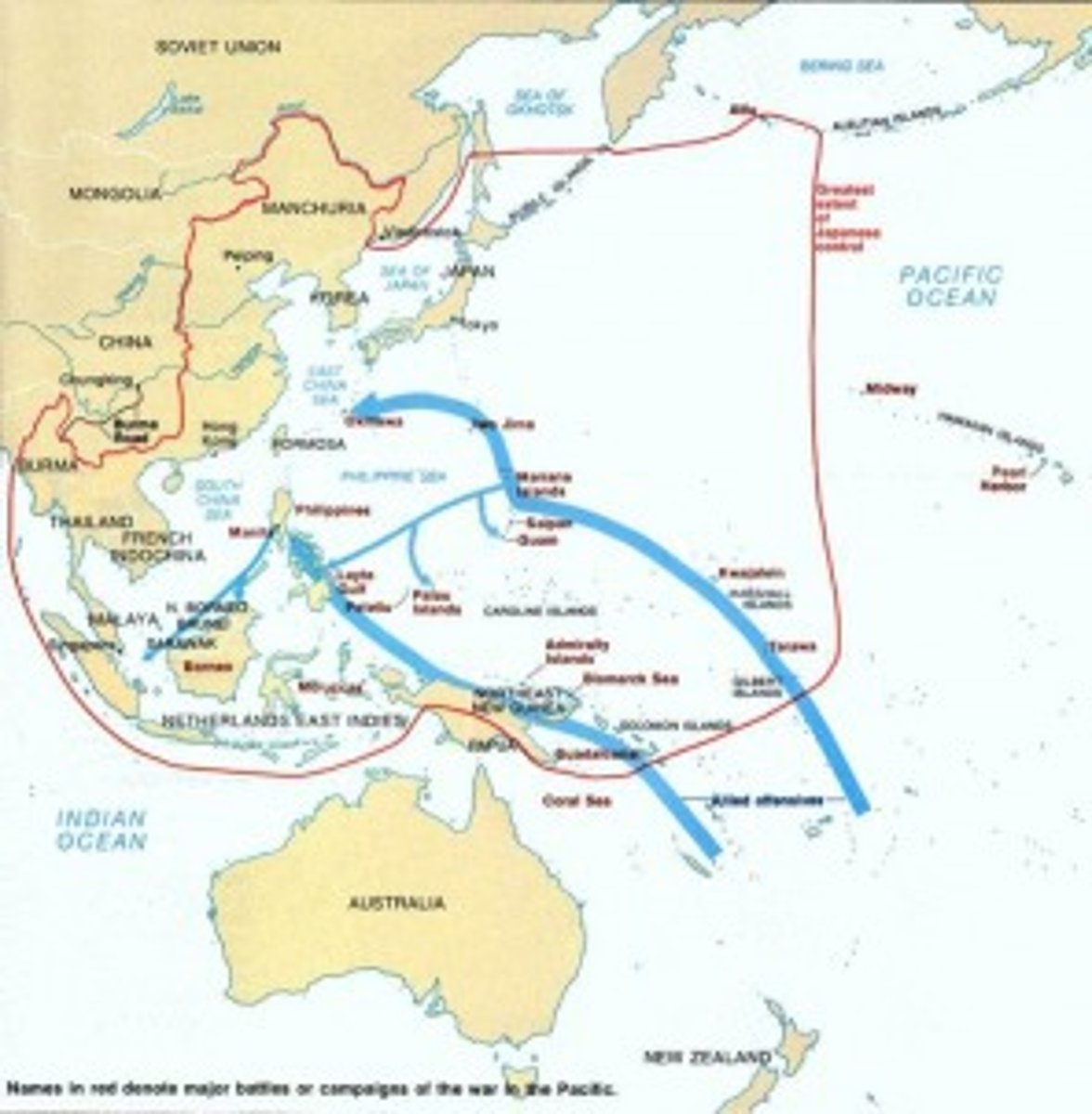WWII Quiz_ G8
1/31
There's no tags or description
Looks like no tags are added yet.
Name | Mastery | Learn | Test | Matching | Spaced |
|---|
No study sessions yet.
32 Terms
Fascism
A political system headed by a dictator that calls for extreme nationalism and racism and no tolerance of opposition
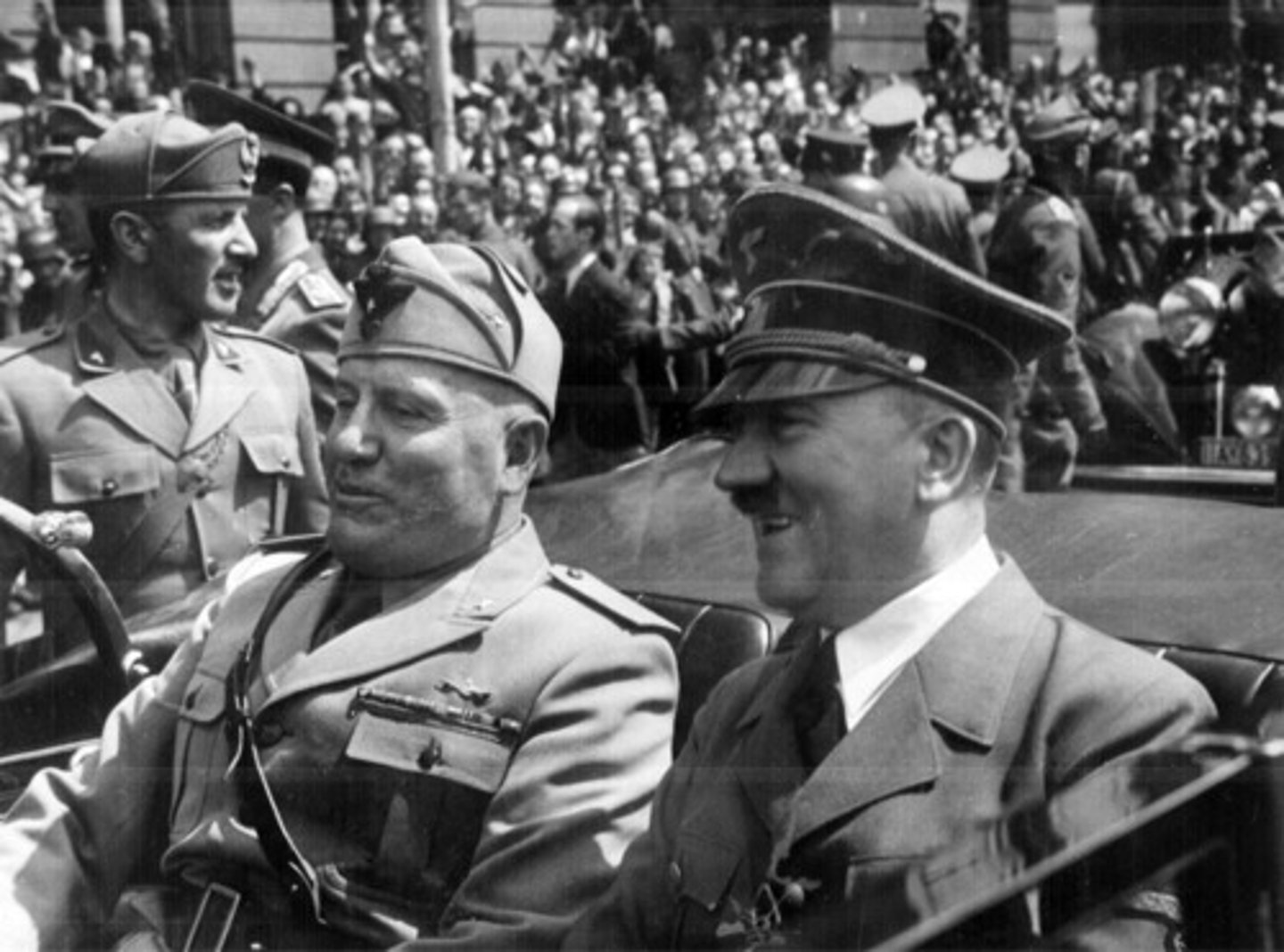
Appeasement
A strategy of giving in to an aggressive country's demands to avoid conflict, often used in hopes of keeping peace.
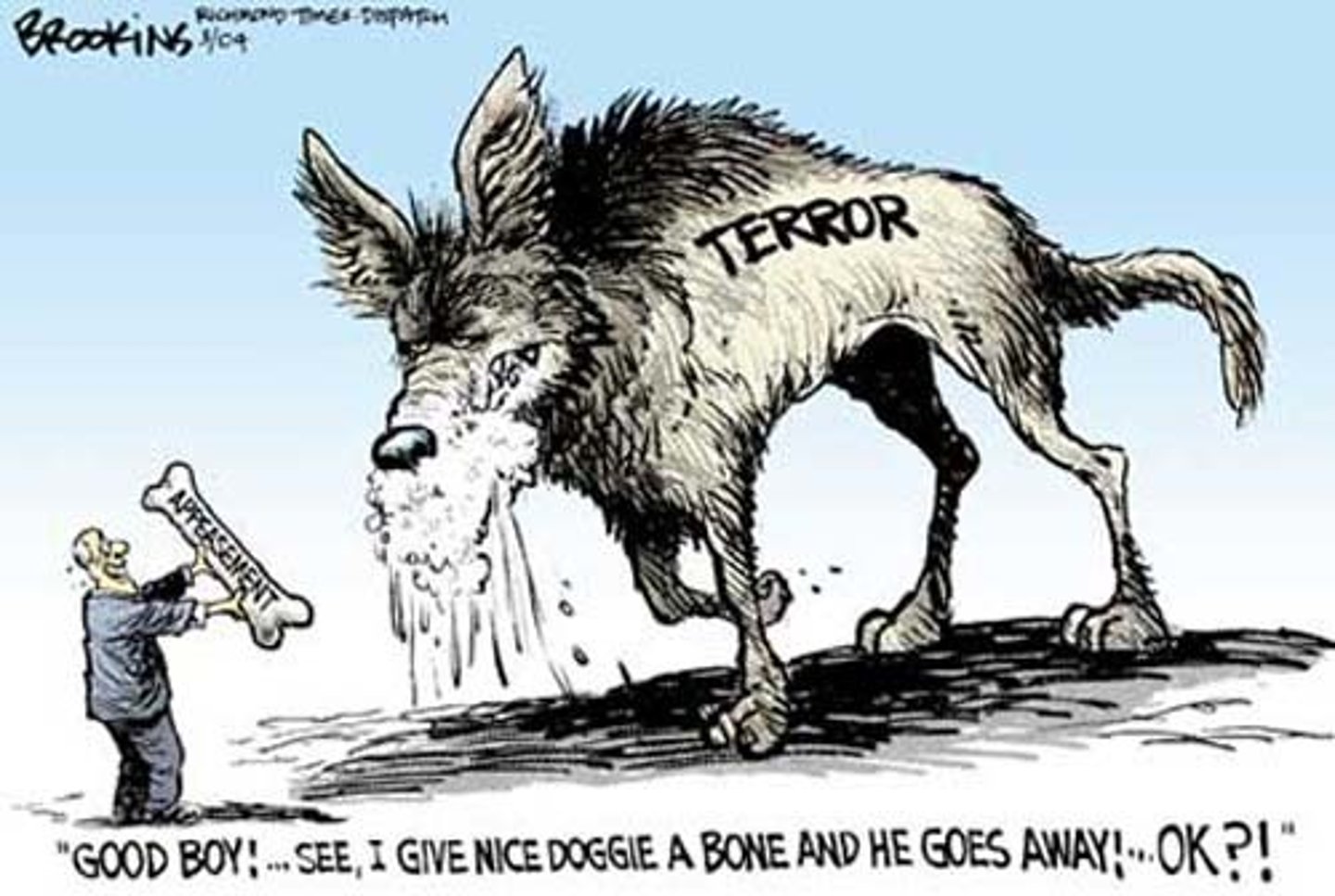
propaganda
information that is spread for the purpose of promoting some cause or ideas (e.g., posters, pamphlets, newspapers)
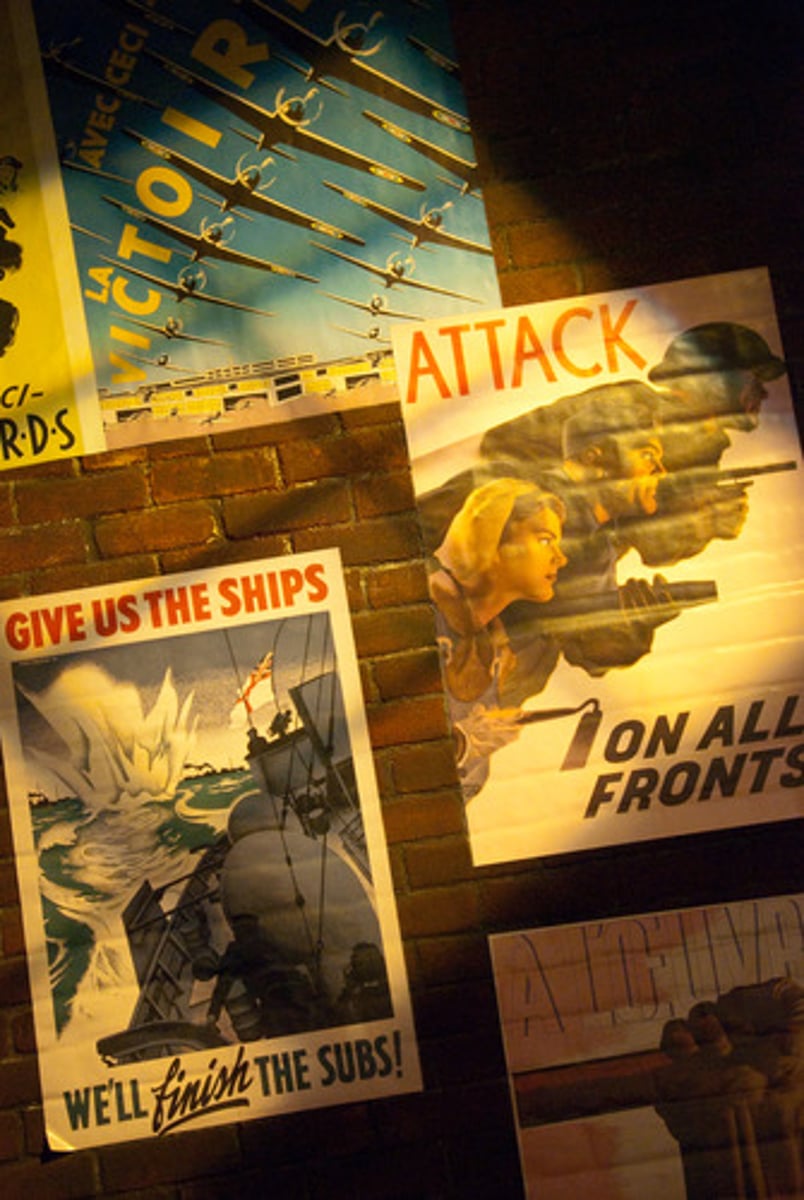
Neutrality
A refusal to take part in a war between other nations
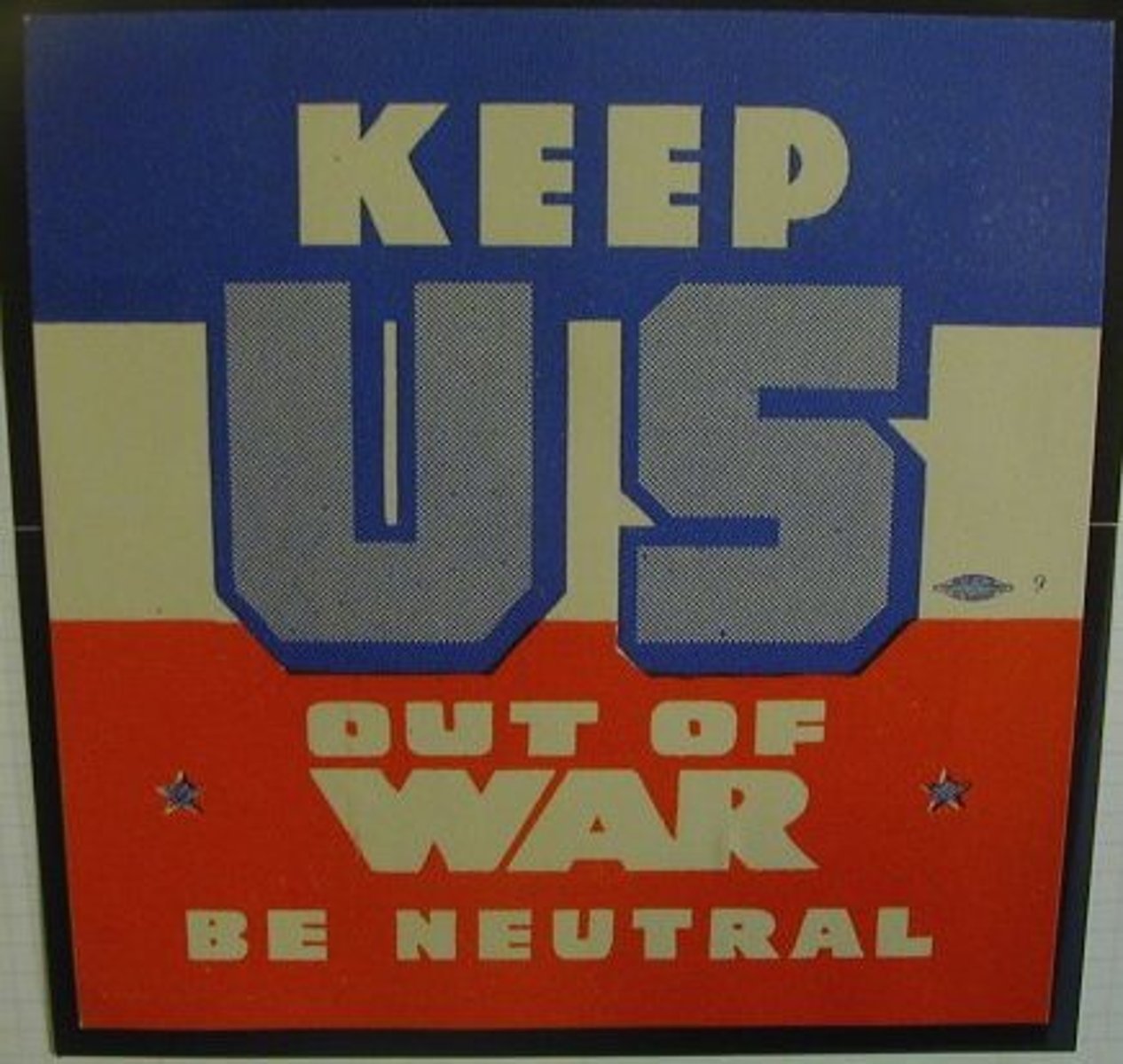
Blitzkrieg
"Lighting war", typed of fast-moving warfare used by German forces against Poland in 1939
Axis and Allies Powers
The two sides in World War Two. The AXIS powers were: Germany, Italy, Japan, Hungary, Romania, and Bulgaria. The ALLIES were: U.S., Britain, France, USSR
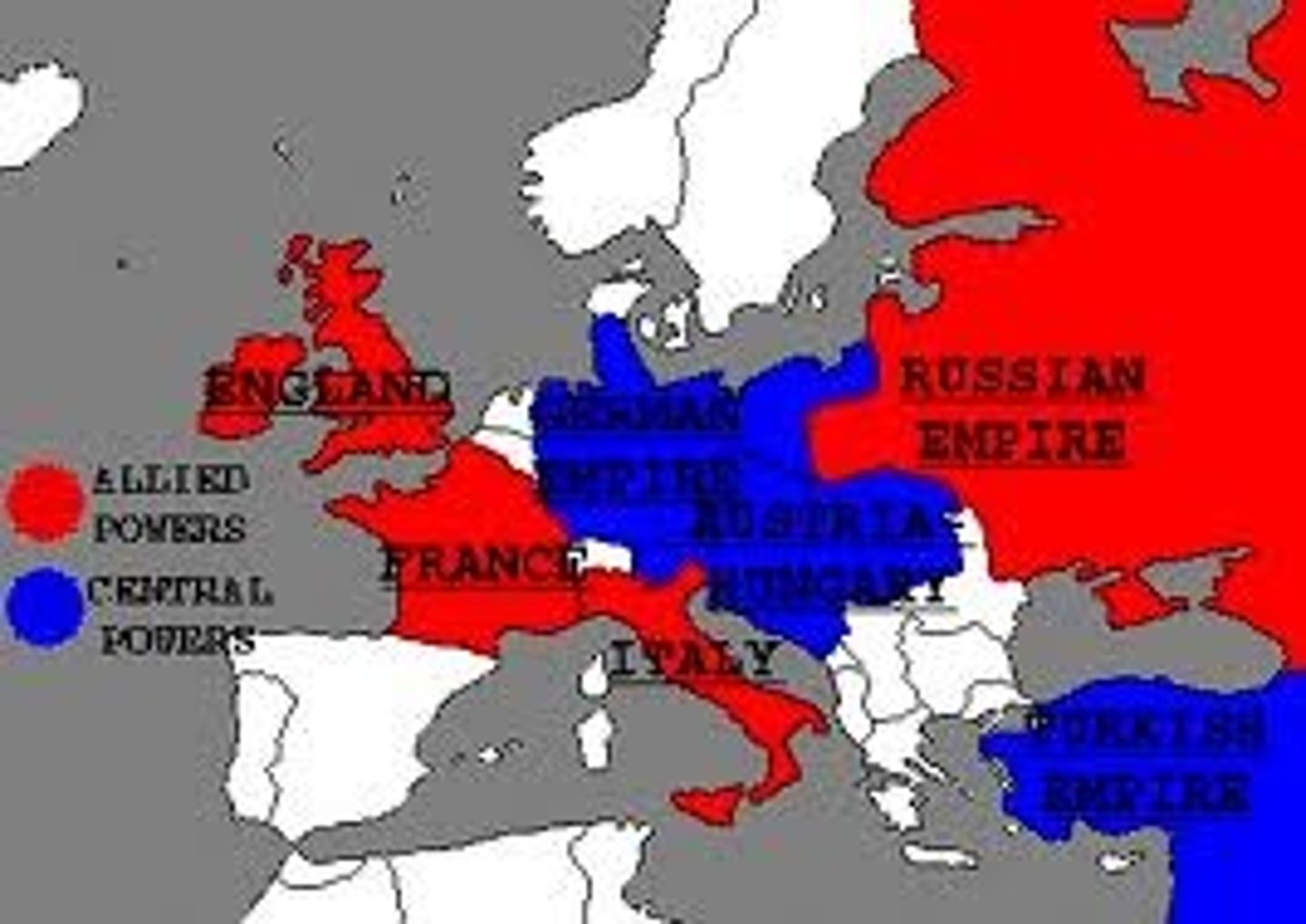
Kamikaze
a fighter plane used for suicide missions by Japanese pilots in World War II
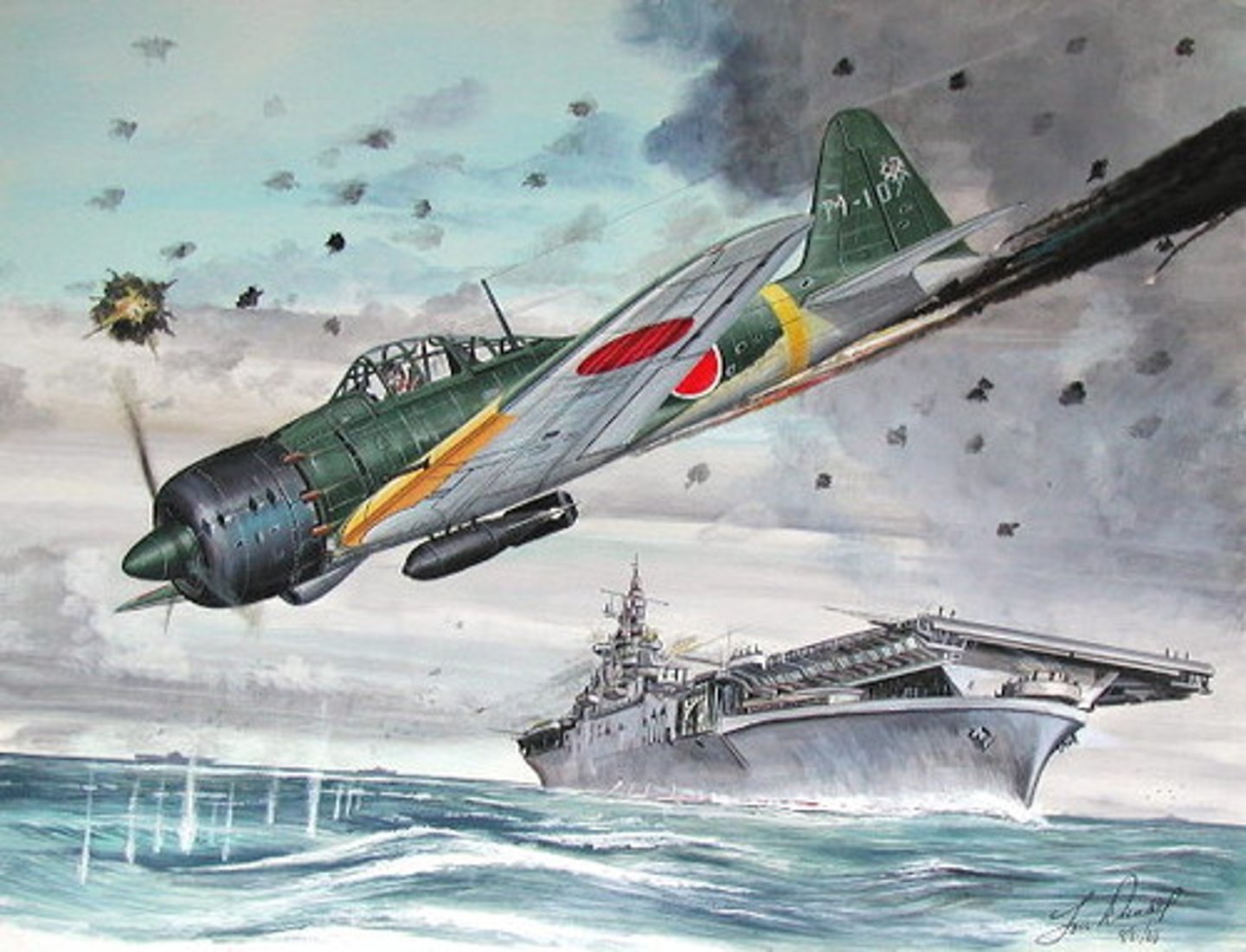
Battle of Britain
A series of battles between German air forces, fought over Britain in 1940-1941
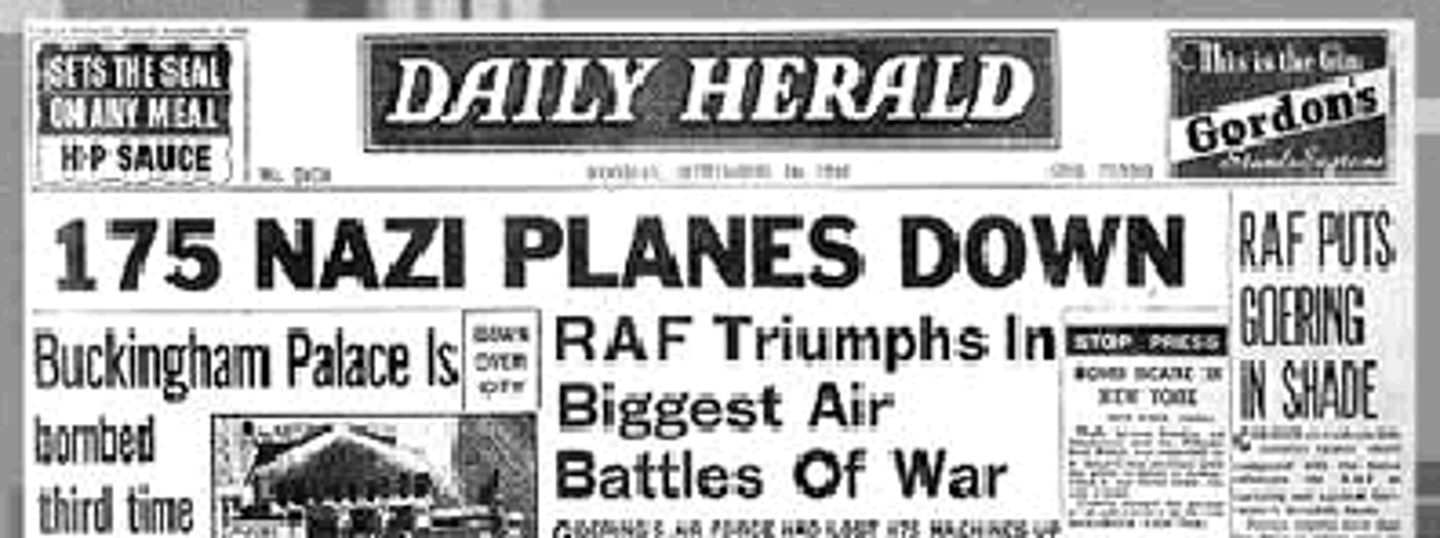
Invasion of Poland
Germany invaded, breaking their agreement, so Britain and France declared war, starting World War II
Pearl Harbor
United States military base on Hawaii that was bombed by Japan, bringing/pushing the United States into World War II.
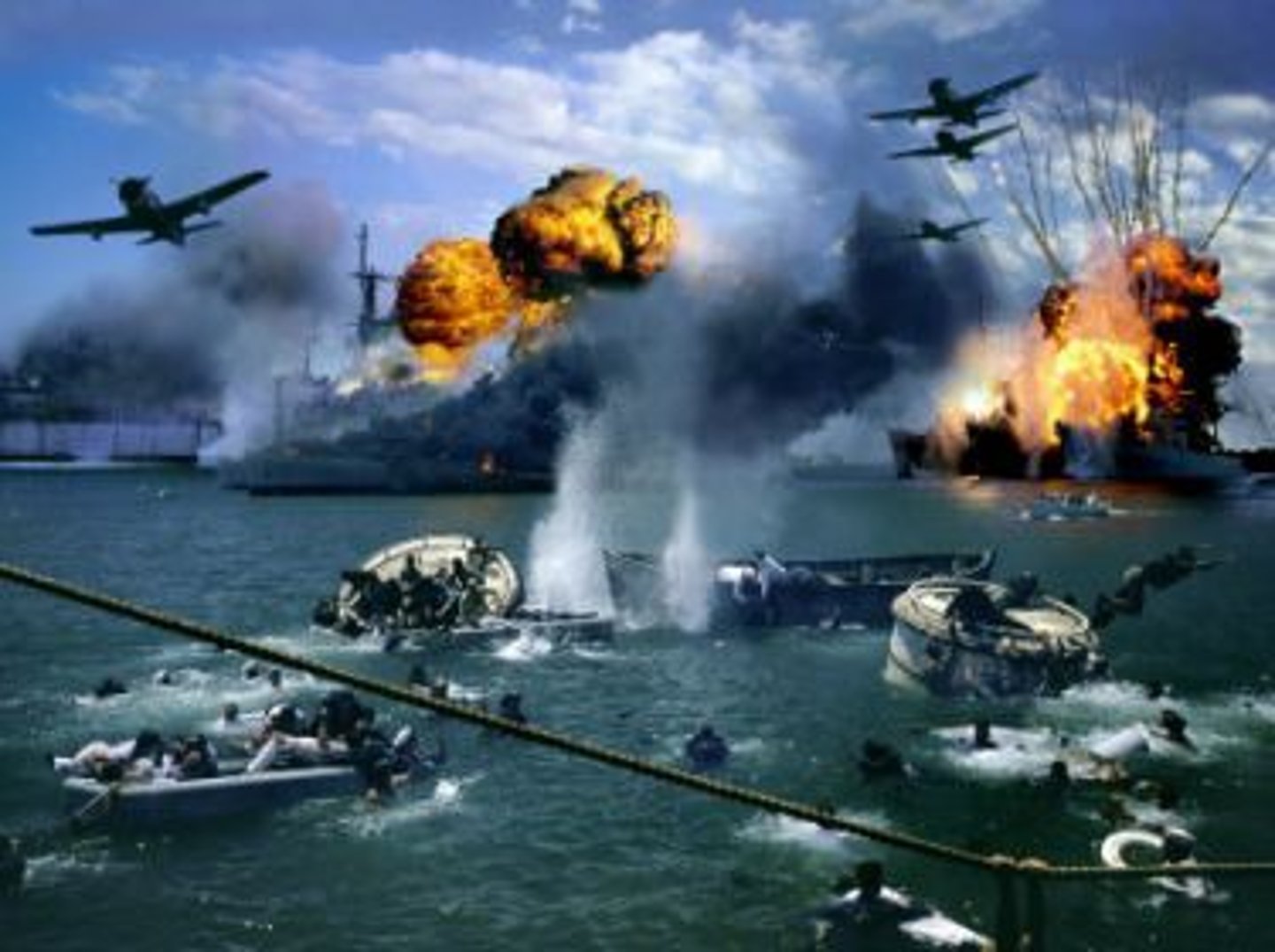
Battle of Stalingrad
(1942) World War II battle between invading German forces and Soviet defenders for control of Stalingrad; each side sustained hundreds of thousands of casualties; Germany's defeat marked turning point in the war
Battle of Al Alamein
(North Africa) Battle led by Monty Rommel where the British took Axis soldiers by surprise and led to a British victory
Allied D-Day Invasion
An air and sea attack in attempt to liberate France from German control
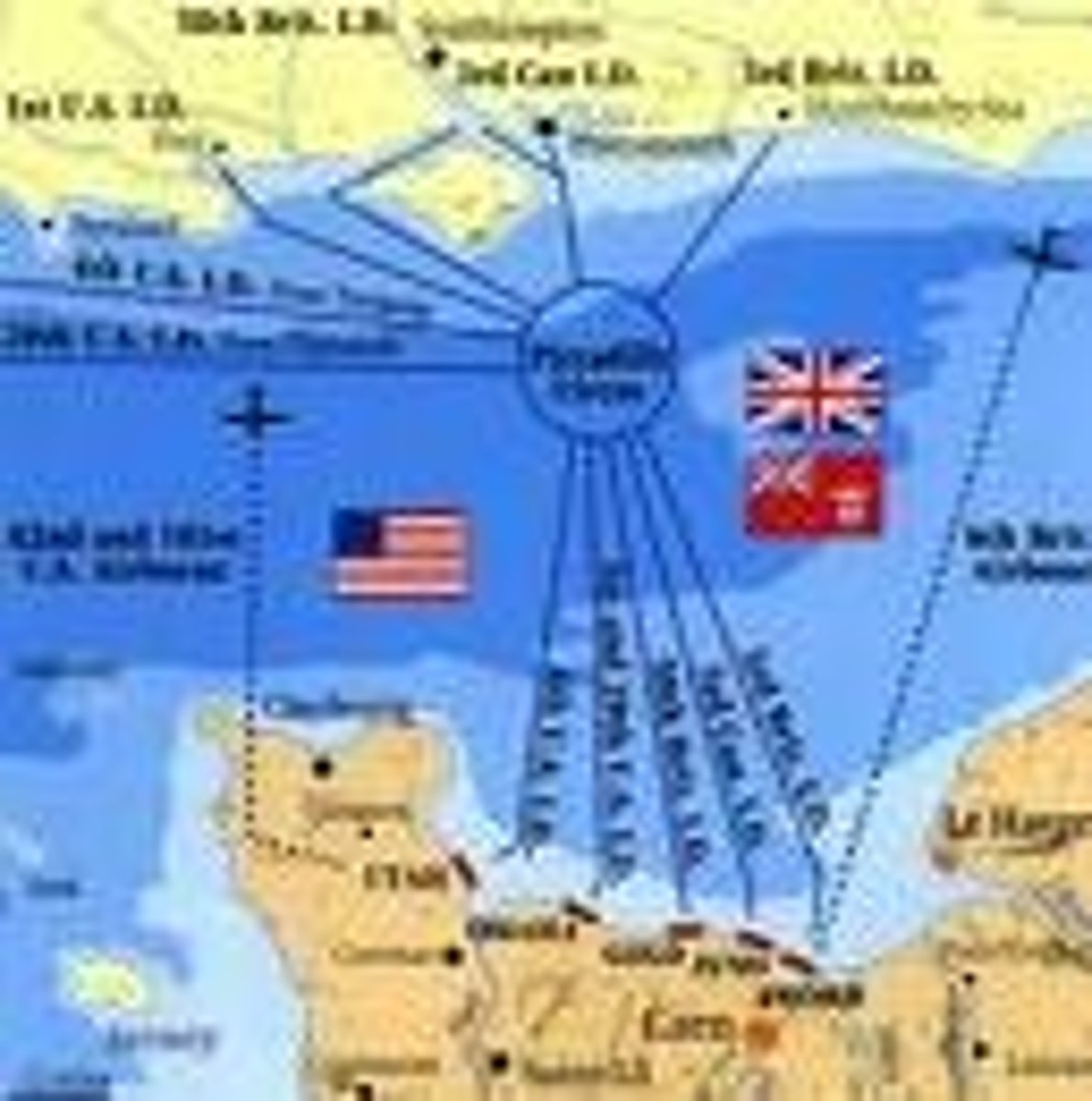
Victory in Europe Day (V-E Day)
May 8th 1945, The day that Germany surrendered, Hitler now dead
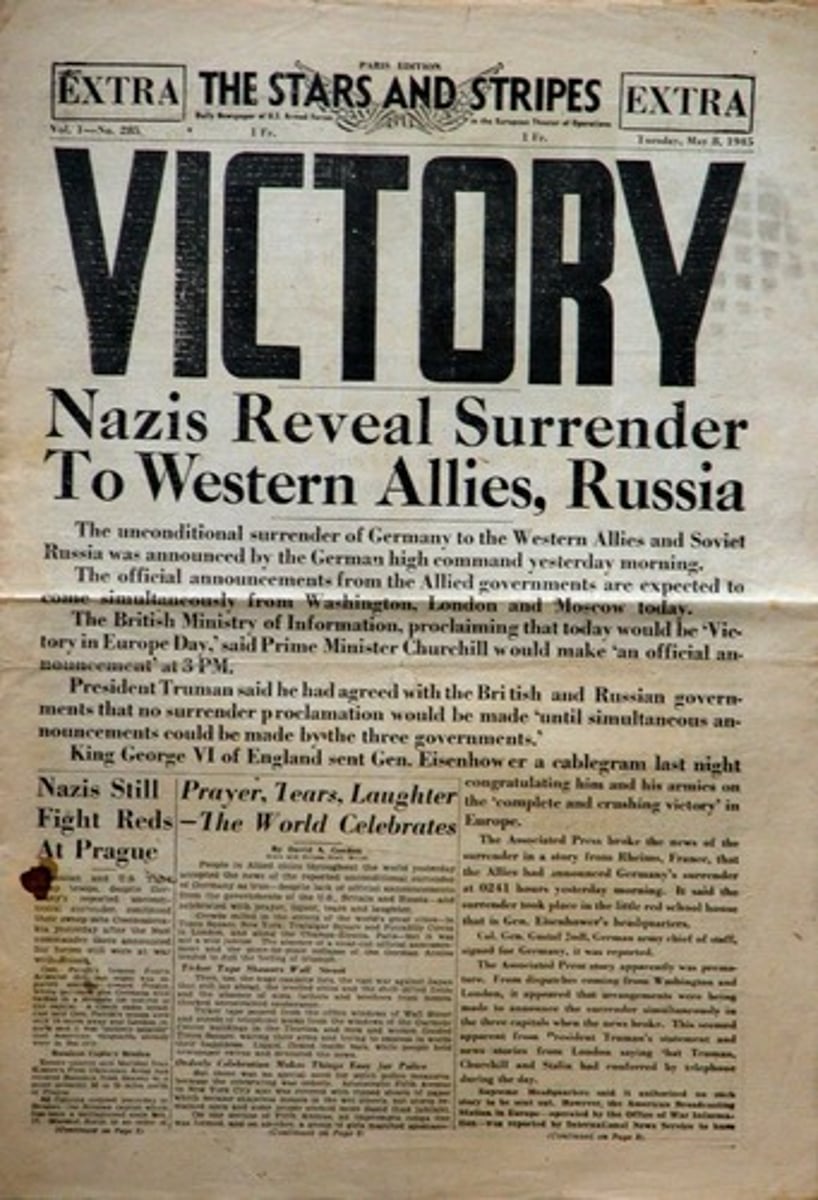
Hiroshima and Nagasaki
Two Japanese cities on which the U.S. dropped the atomic bombs to end World War II.
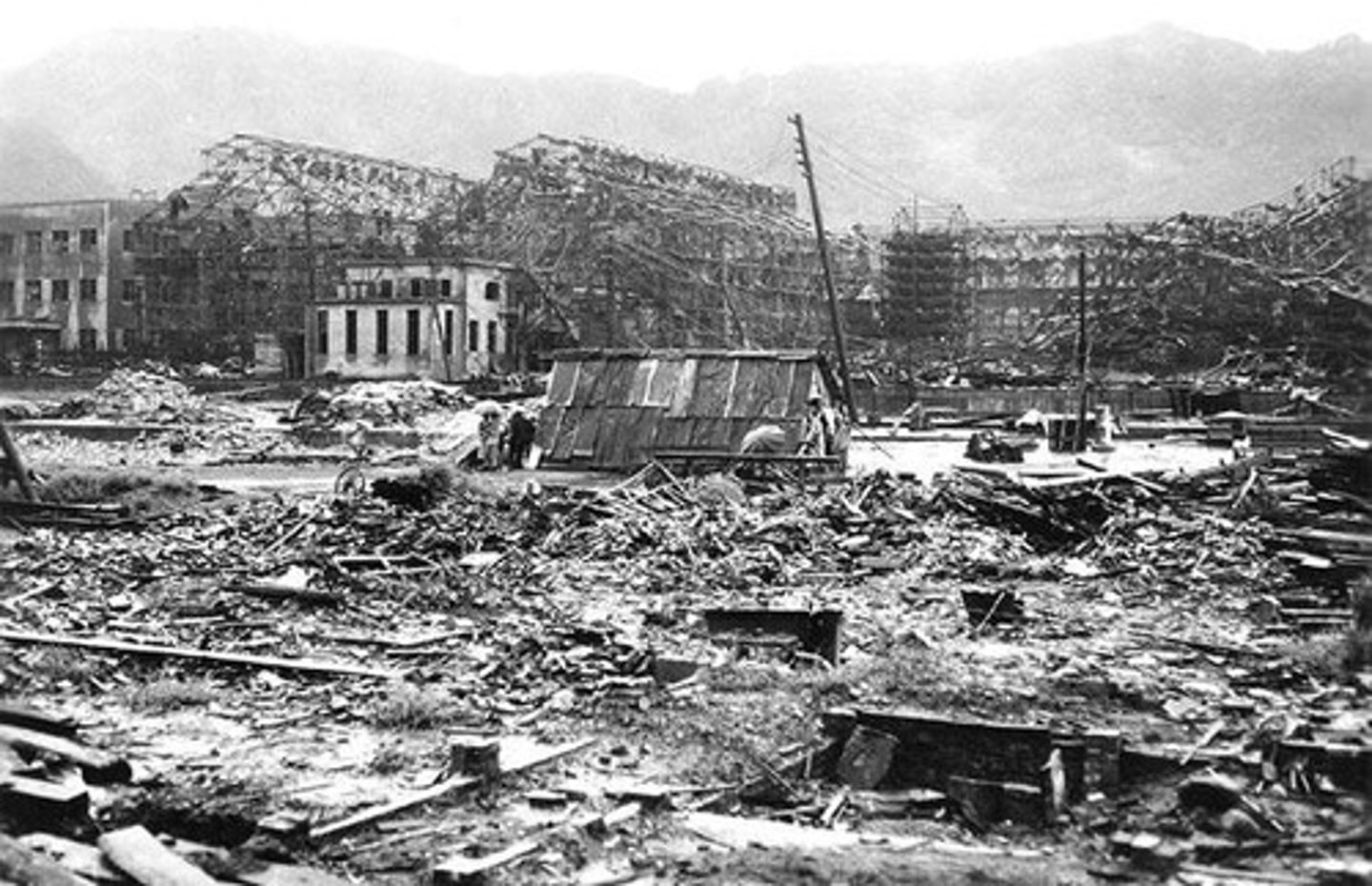
Adolf Hitler
Leader of the Nazi party; Implemented Fascism and caused WWII and Holocaust.
Der Fuhrer
Hitler's title as leader of Nazi Germany
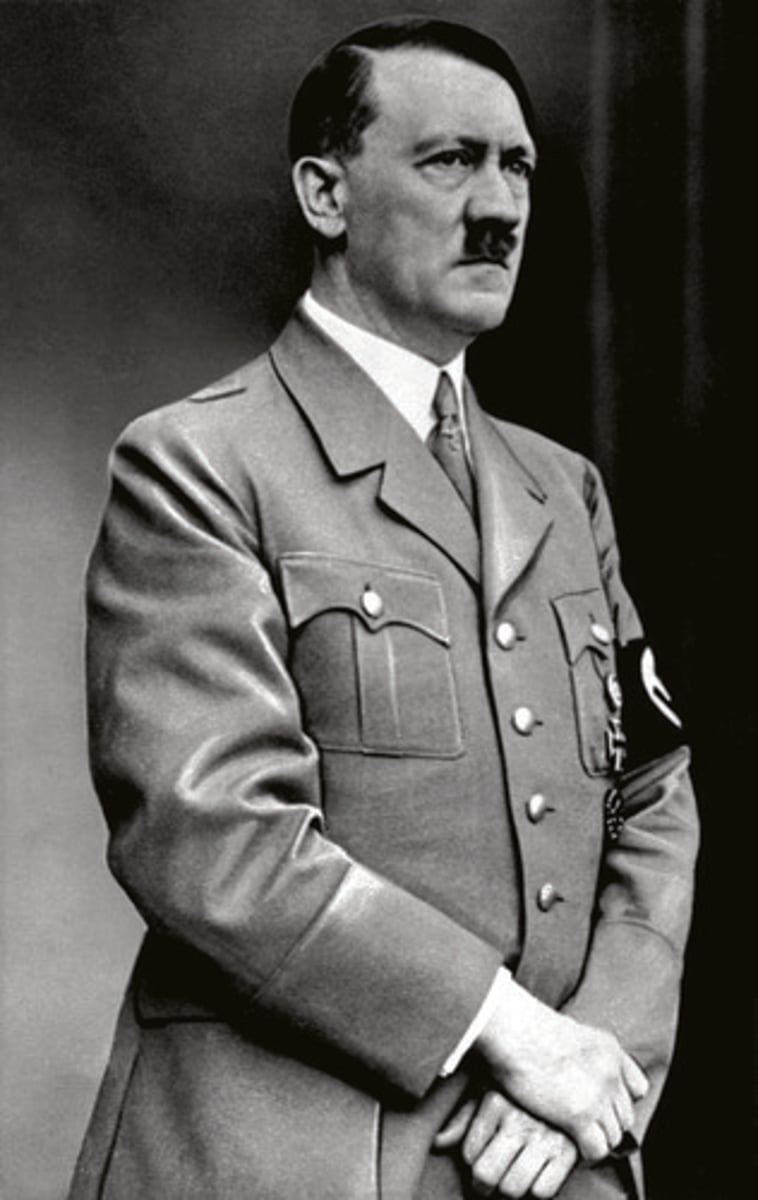
Nazis
Hitler's National Socialist Party
Gestapo
Nazi secret police
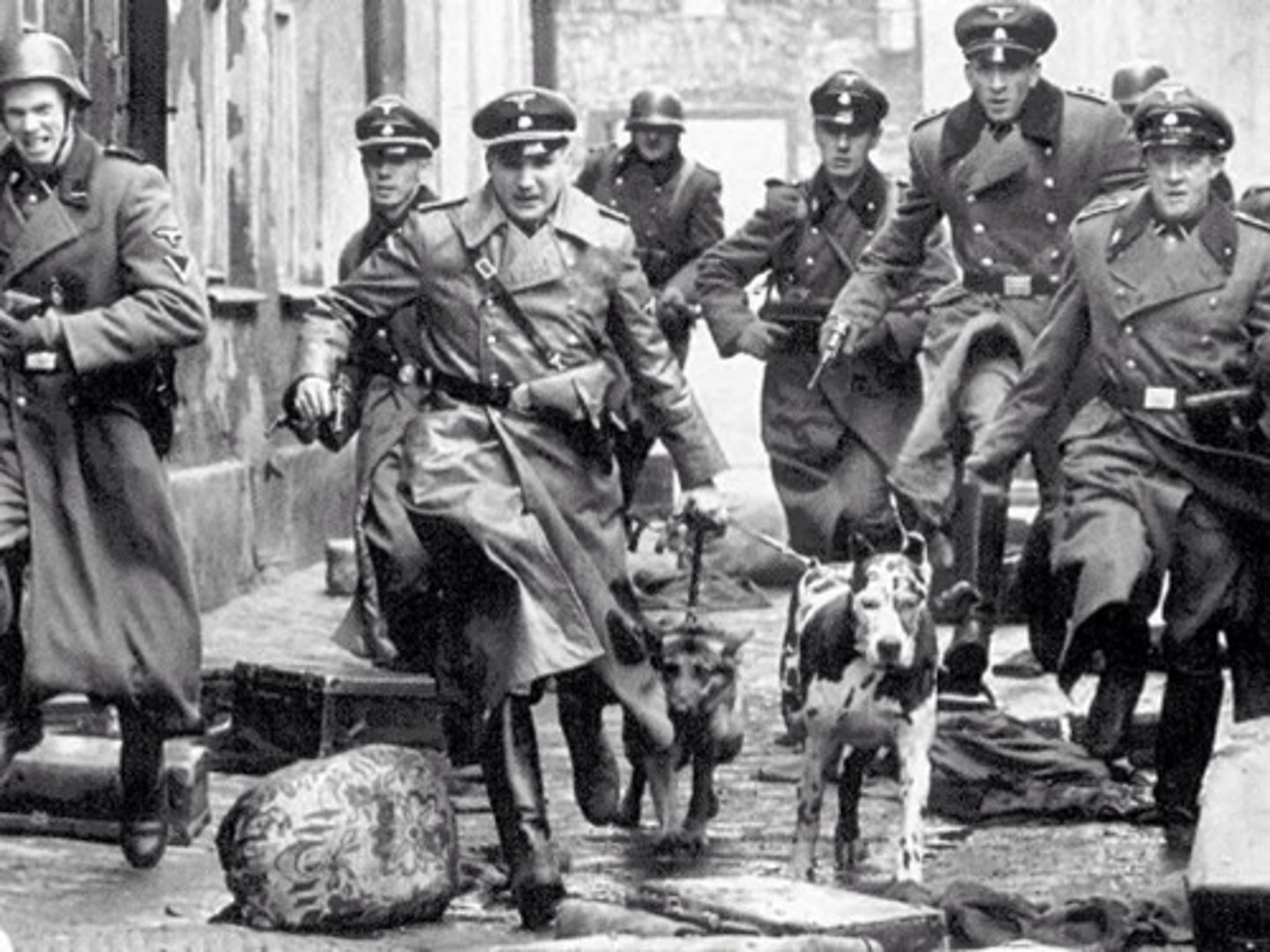
Benito Mussolini
founded fascism and ruled ITALY for almost 21 years, most of that time as dictator.
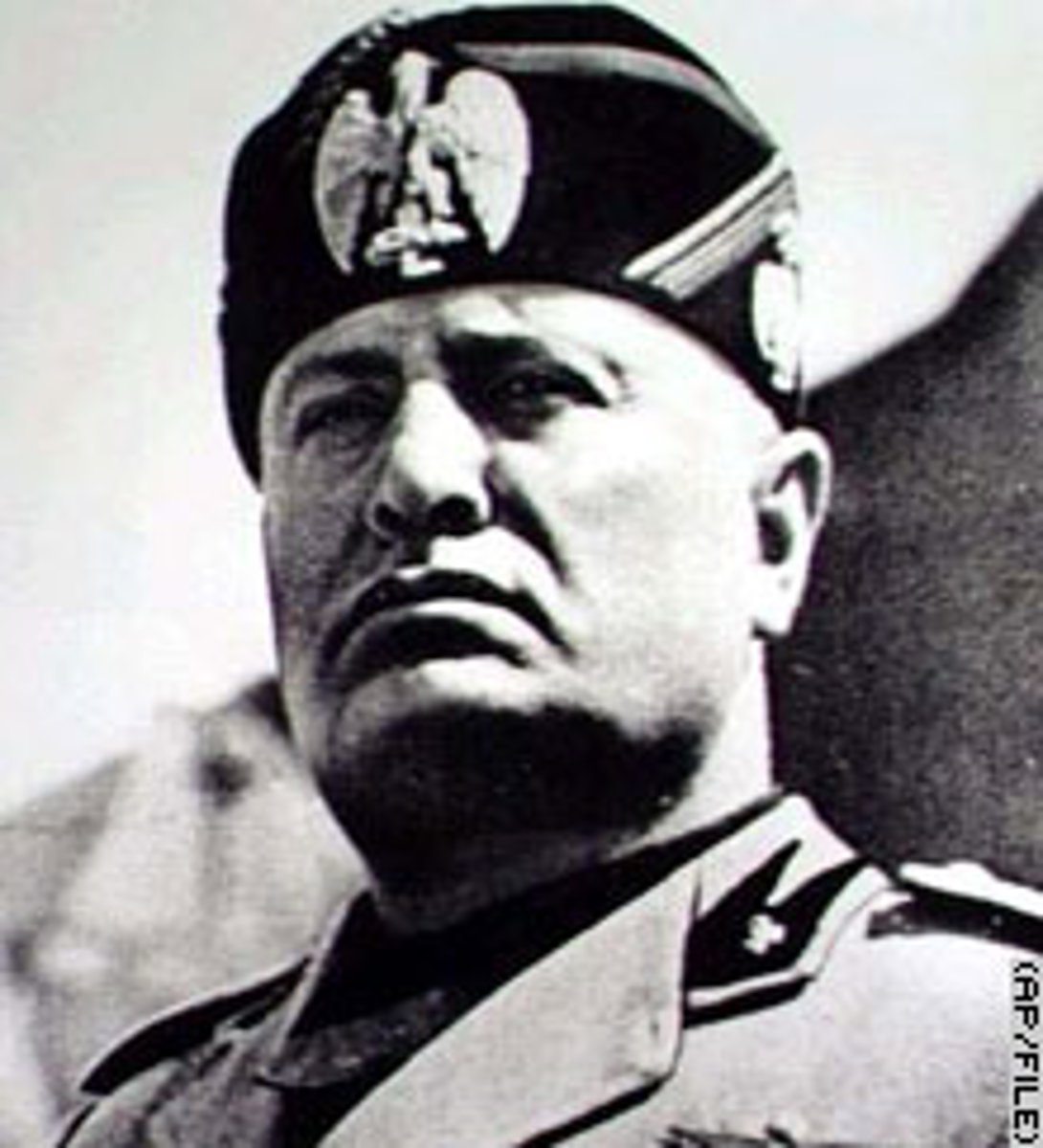
Joseph Stalin
Communist dictator of the Soviet Union (USSR) during WWII
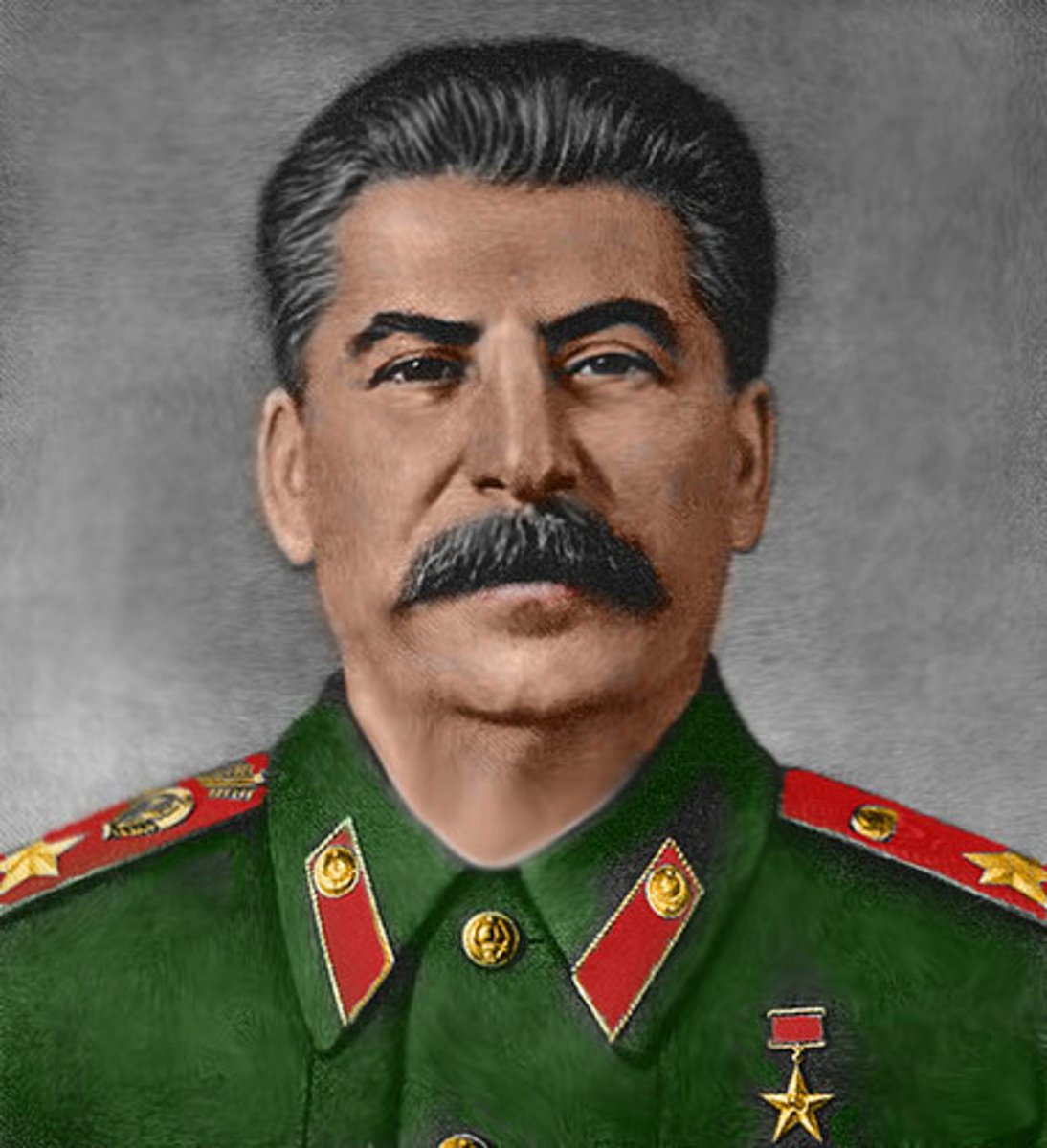
Winston Churchill
Leader of British Empire against Hitler and the Germans, even when they were the last country left fighting.
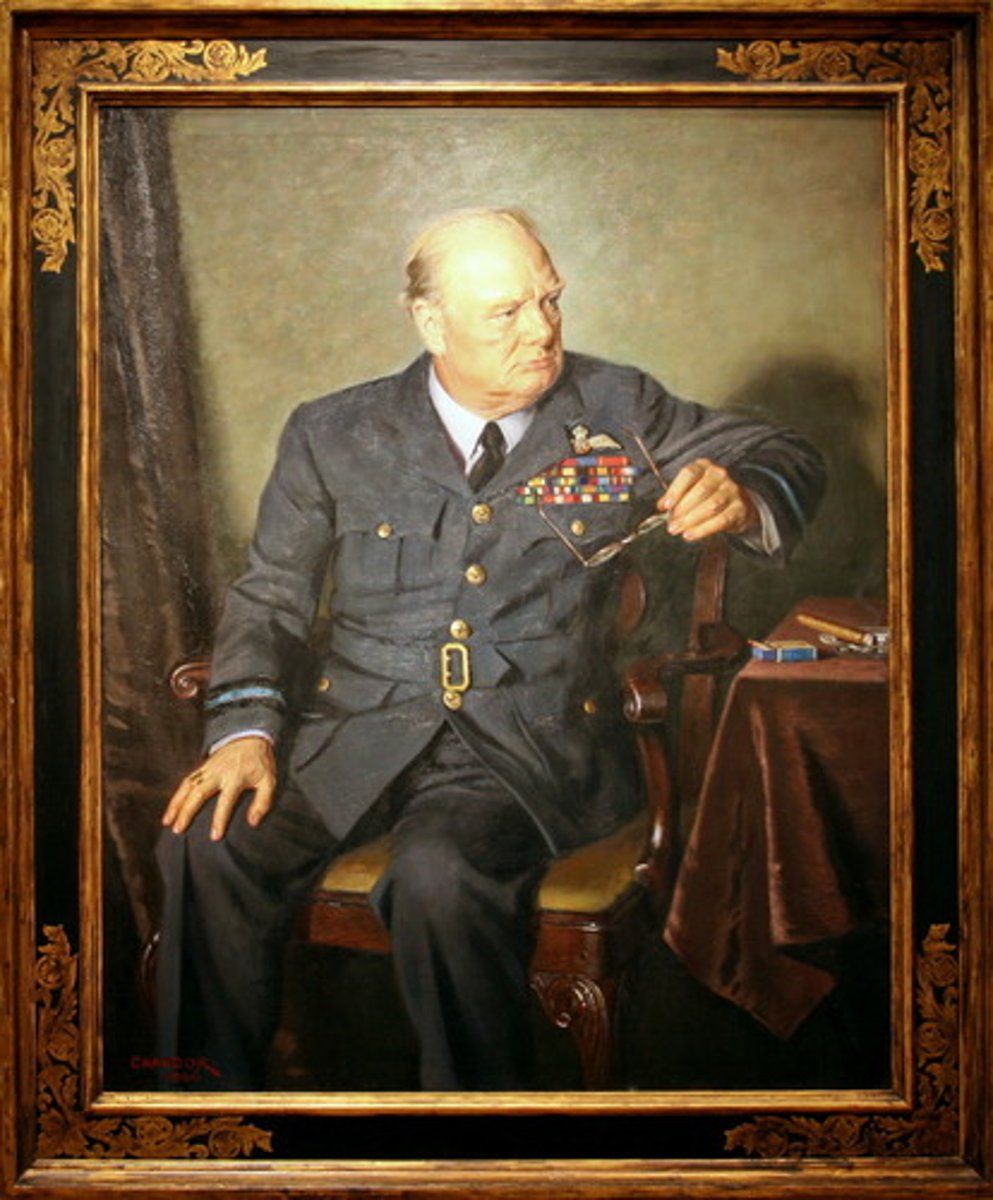
Franklin D. Roosevelt
US president who helped the US out of the Great Depression and into WWI following the attack on Pearl Harbor
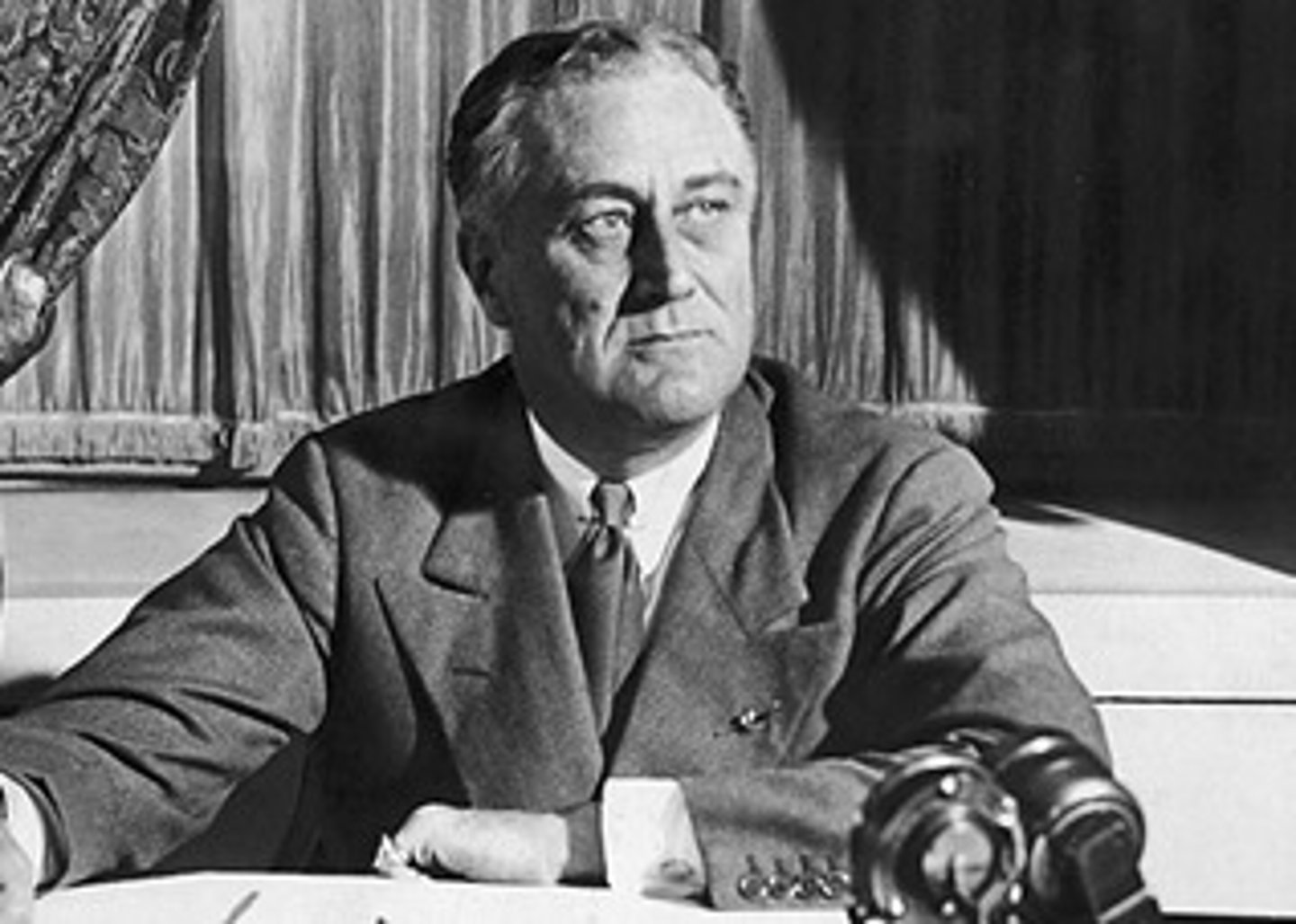
General Eisenhower
US Army general; led the Allied invasion of North African and planned and executed the D-Day invasion at Normandy and the Battle of the Bulge
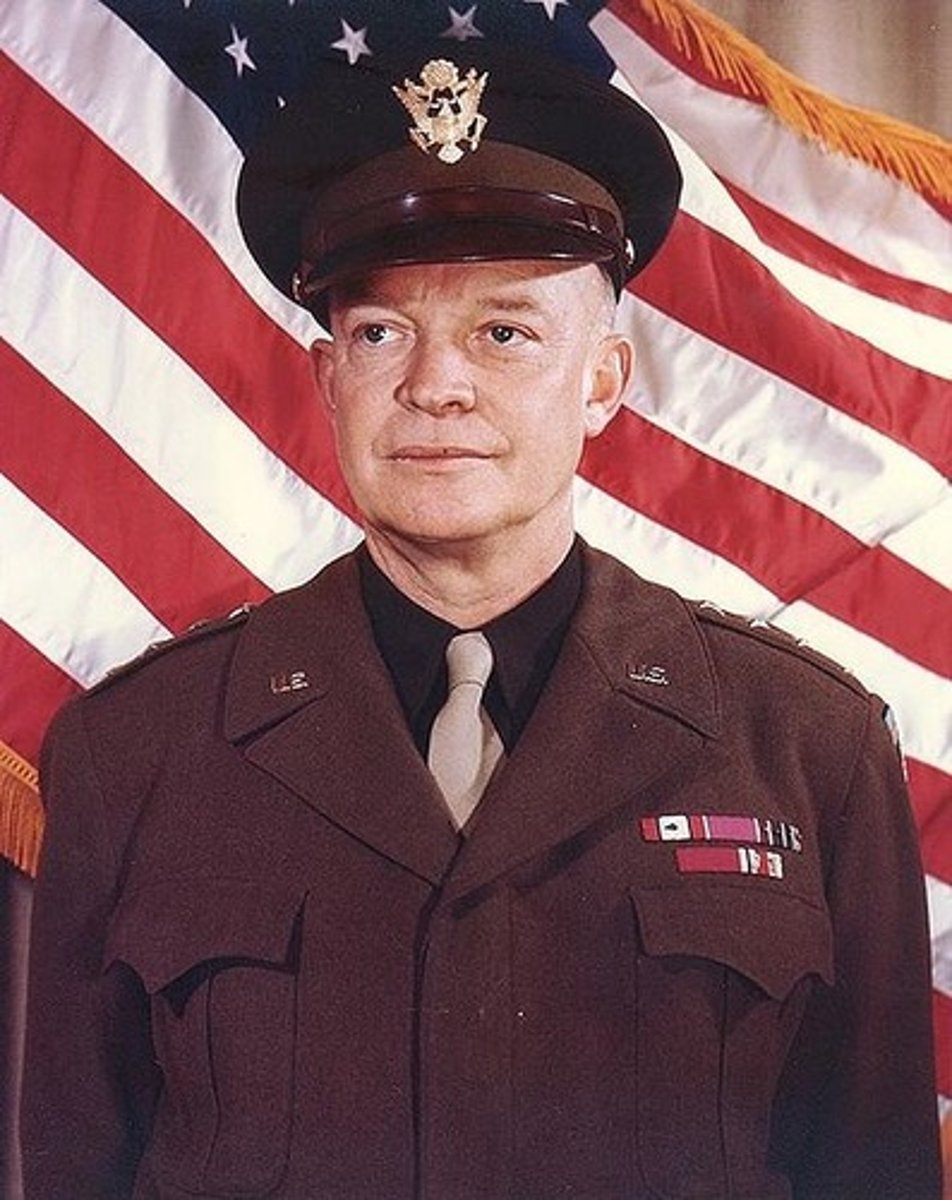
Harry Truman
Became president when Roosevelt died; gave the order to drop the atomic bomb
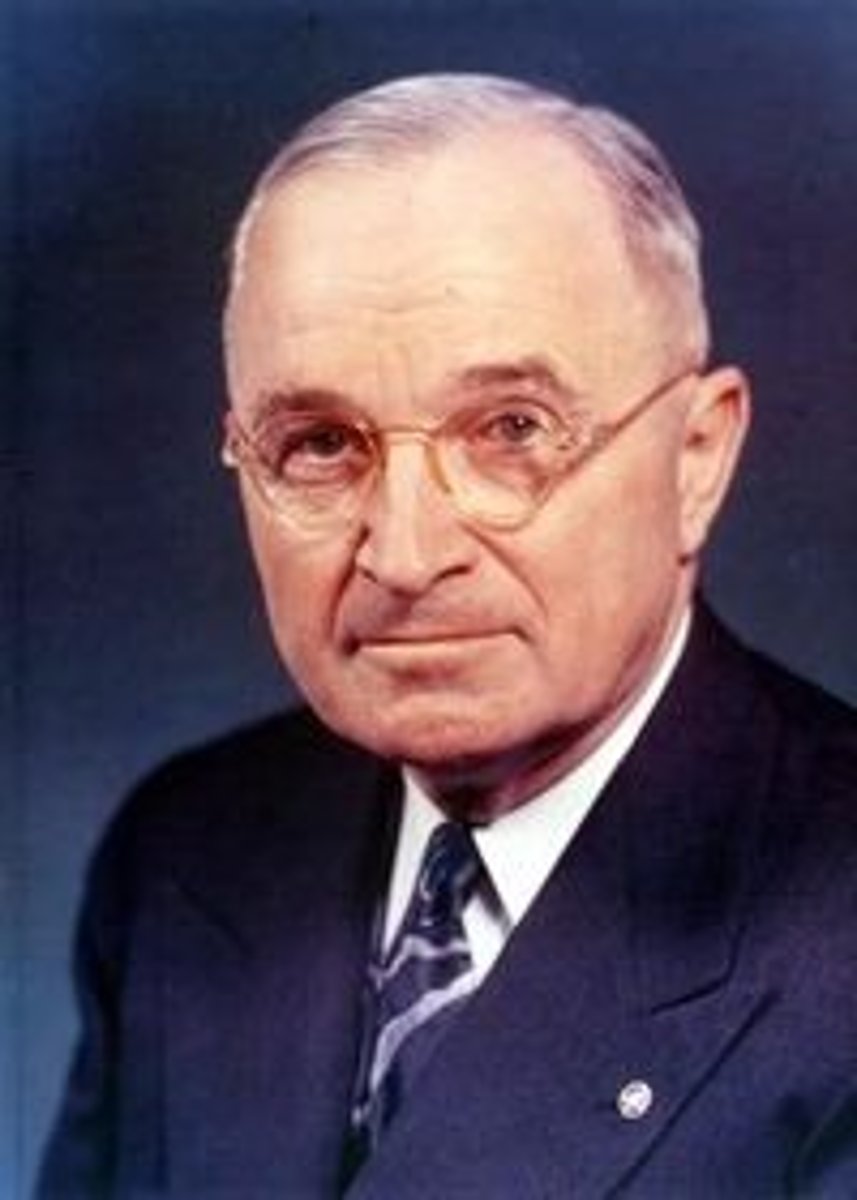
Rosie the Riveter
A propaganda character that represented female workers in the factories and shipyards during WWII.
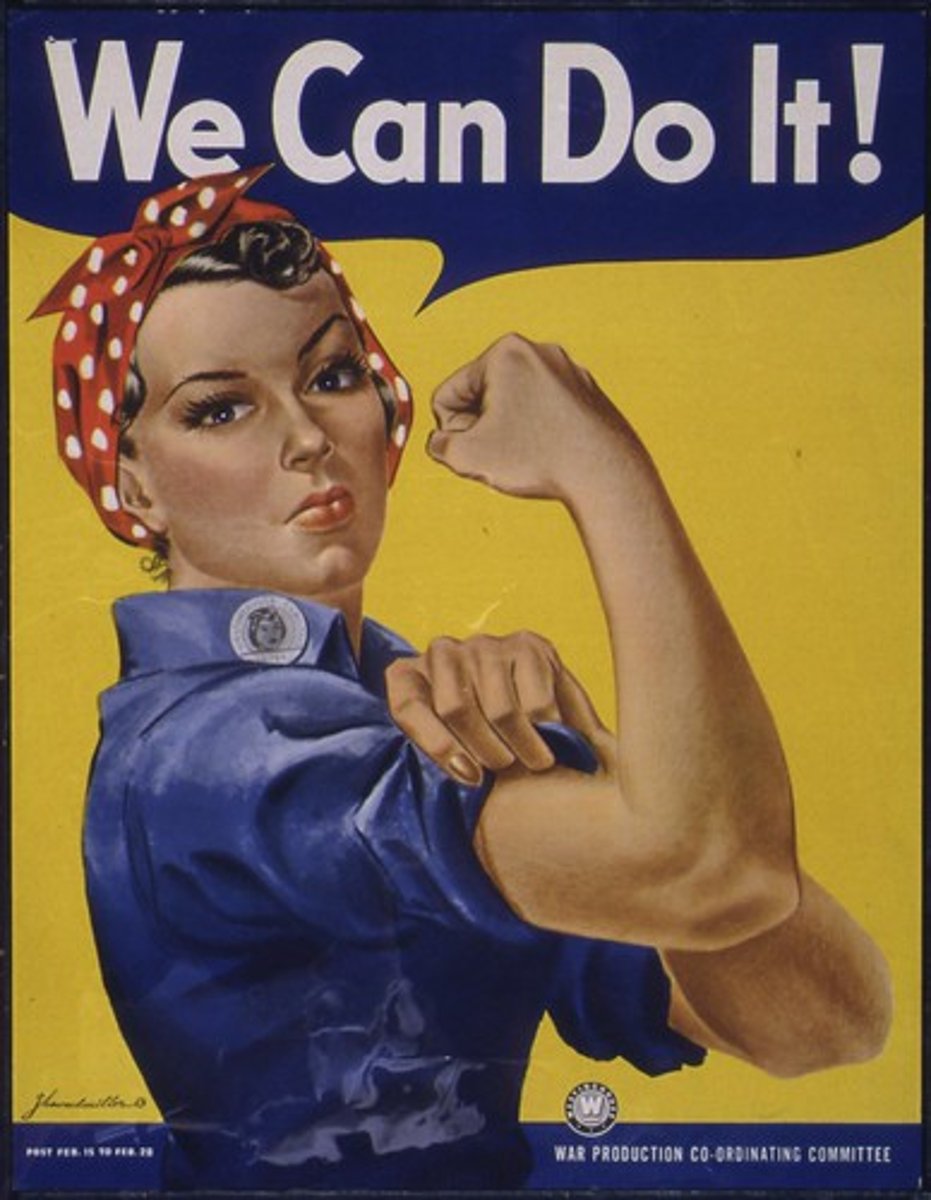
Treaty of Versailles
Treaty that ended WW I. It blamed Germany for WWI and harshly punished Germany.
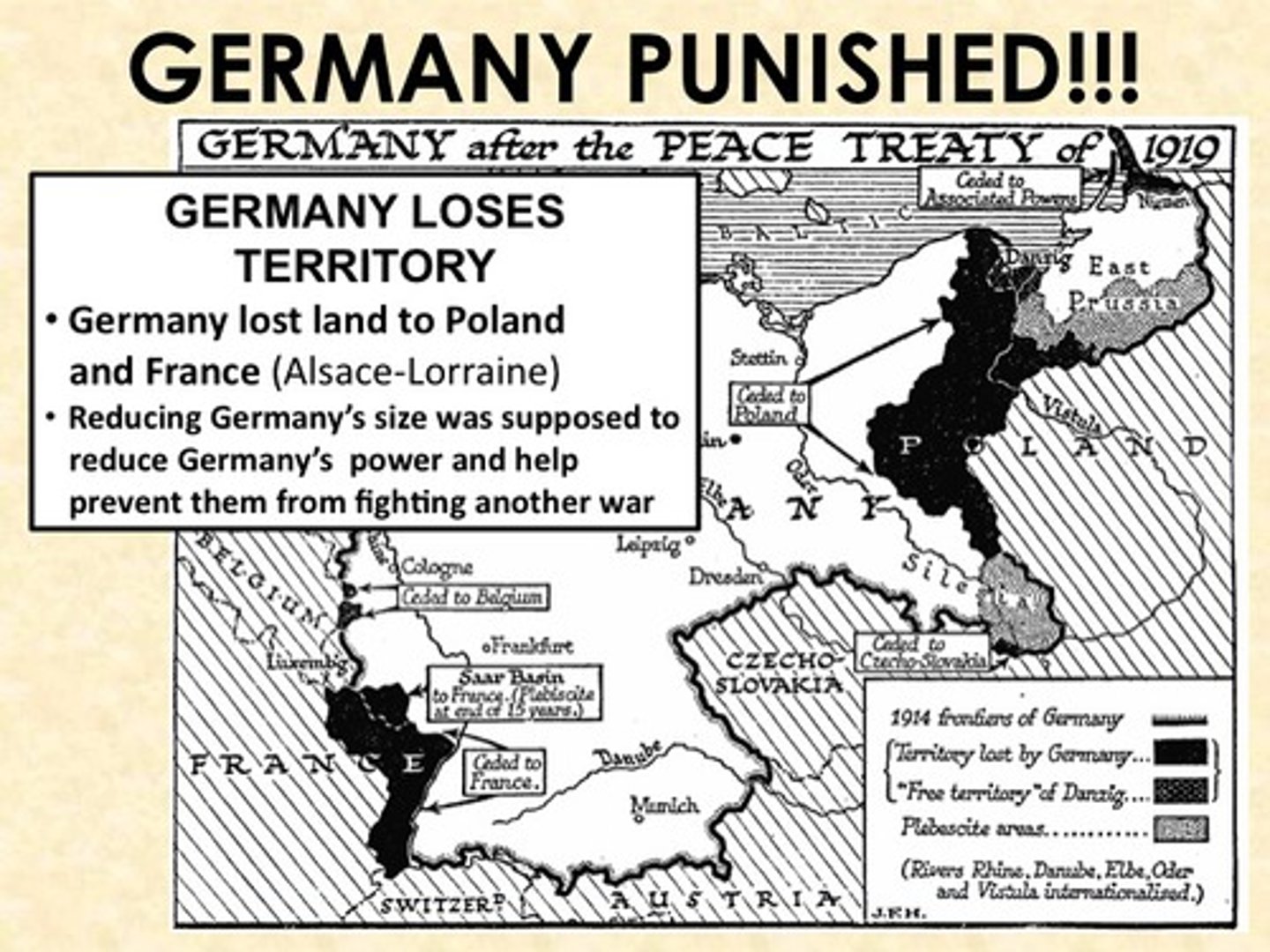
Totalitarian
A form of government in which the ruler is an absolute dictator (not restricted by a constitution or laws or opposition etc.)
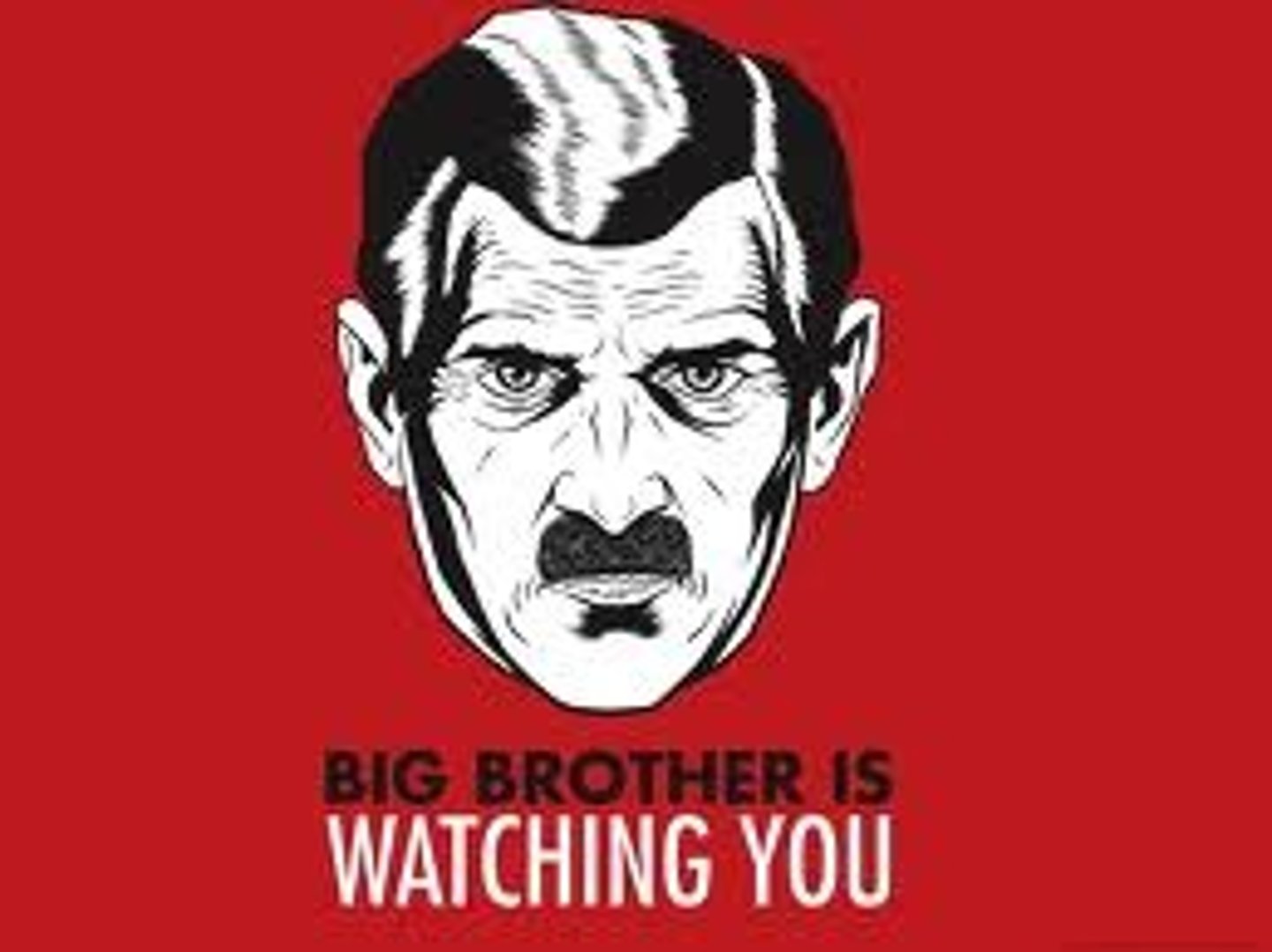
Manhattan Project
A secret U.S. project for the construction of the atomic bomb.

Anti-Semitism
hostility towards or prejudice against Jews.
Genocide
the deliberate killing of a large group of people, especially those of a particular ethnic group or nation (e.g., Holocaust)
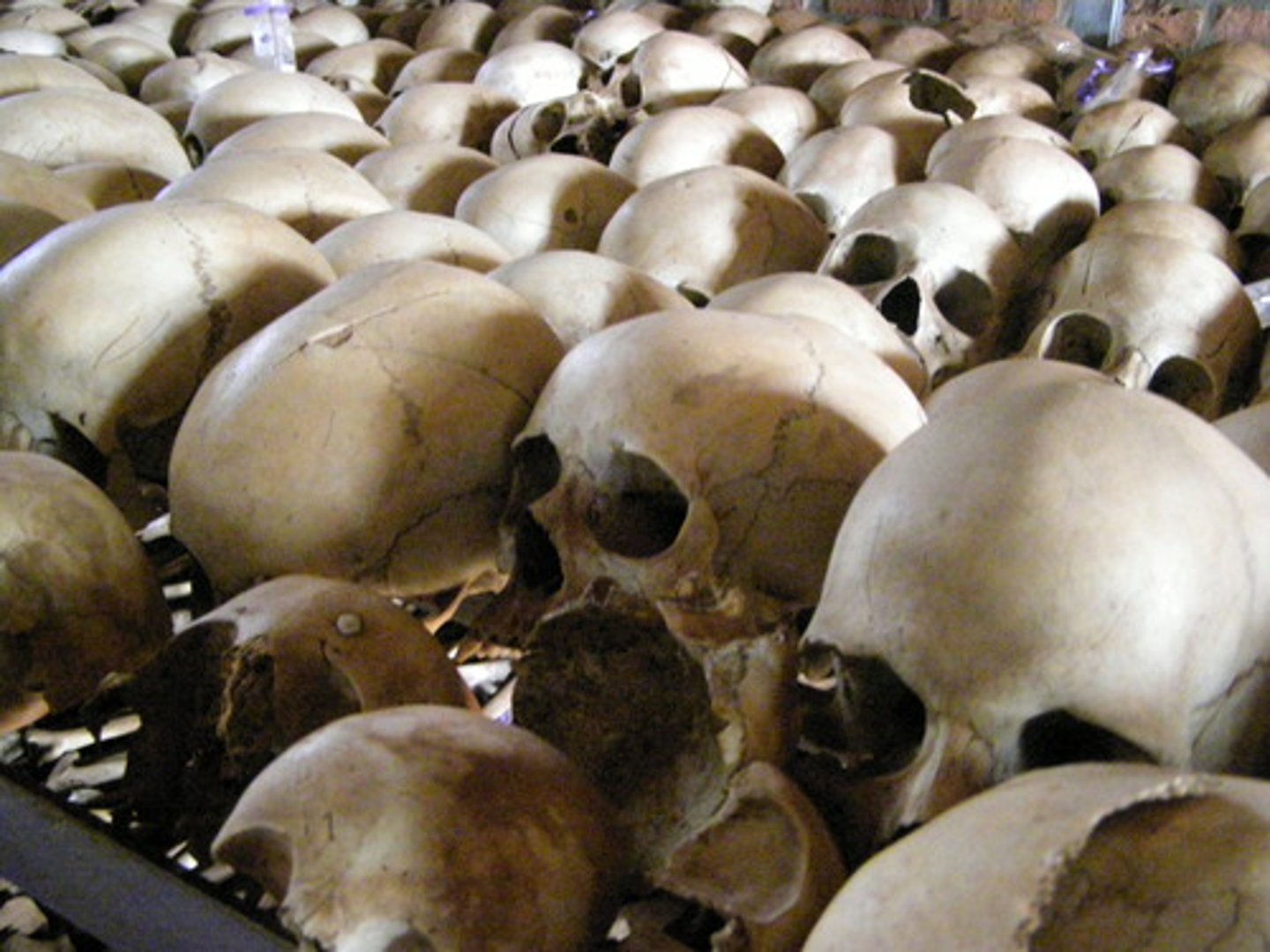
Island Hopping Campaign
The Allies strategy of conquering territory held by the Japanese in the Pacific
